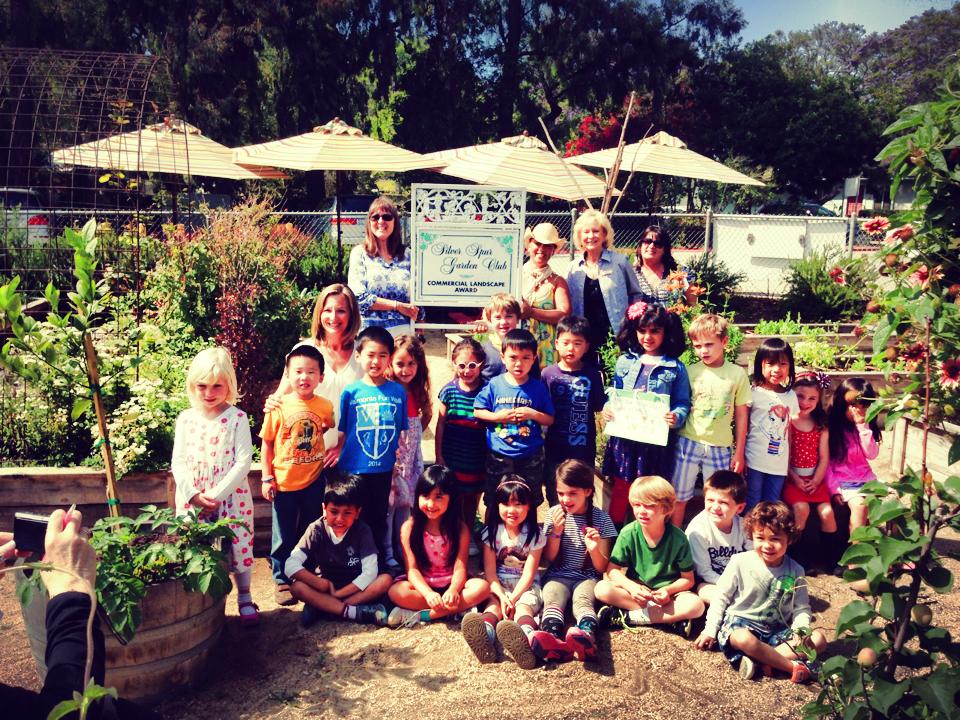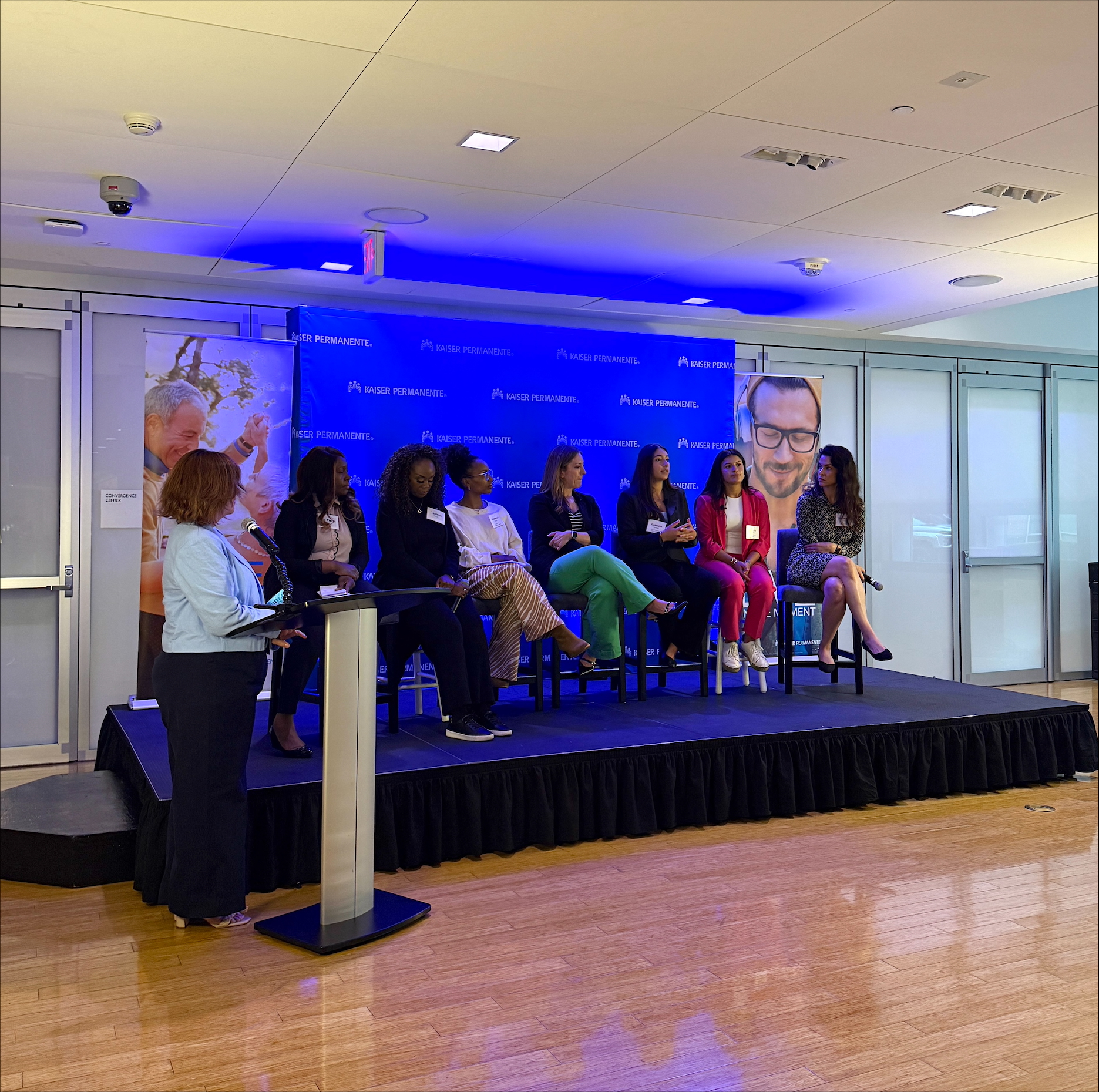The Edible Schoolyard Project has been a wonderful inspiration for growing the school gardens and farm-to-school movement. As we continue with our celebration of National Gardening Month, we wanted to share again this great story of how the Edible Schoolyard Academy has inspired a flourishing of school gardens and edible education across the country. The Edible Schoolyard Academy will be taking place again this summer. Learn more at http://edibleschoolyard.org/training.
Diana Heffernan-Schrader was looking for a way to get to know people in her community better. As the mother of a young baby and a 2-year old living outside of Los Angeles, Calif., she had recently left her busy career behind to care for her family.
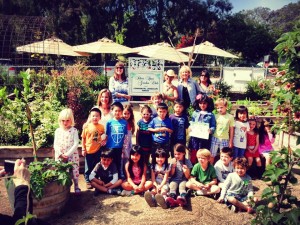
“I was working in L.A., commuting an hour and half a day to and from work, and I realized there had to be more to life than this. It’s funny how we work all day spending so much time just doing what we do and not always connecting to the world around us. When I had kids, I decided to apply my business skills to something totally different than what I’d done before, something that would allow me to connect with other families in the community and contribute to the quality of my children’s early education experience. I wanted to create a school garden.”
If you’re looking to build a school garden, you probably want to have the folks from Edible Schoolyard Project (ESYP) backing you up. ESYP was born out of the vision of famed Chez Panisse founder and chef, Alice Waters, and the then principal of Martin Luther King, Jr. Middle School, Neil Smith. They joined forces nearly two decades ago to create a garden and teaching kitchen at MLK Middle School that would be the foundation for a whole different kind of teaching curriculum and school community.
Each summer, to help spread the “edible education” vision to schools far beyond the Berkeley, Calif. campus, ESYP holds their annual Edible Schoolyard Academy, inviting educators, gardening enthusiasts, food service coordinators, parents and community leaders to join them for a week of training on how to create sustainable edible education programs in their schools and communities.
Transforming more than an empty lot
Heffernan-Schrader credits the Edible Schoolyard Academy with helping build her field of dreams.
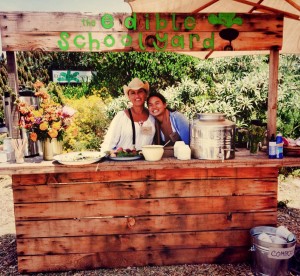
“The school that my 2-year old attended – an elementary school with a preschool connected – had an empty lot next to it. I approached the principal of the school about bringing a garden to the schoolyard, and she was up for the challenge. I’d heard about the Edible Schoolyard Project and saw that they had an academy coming up, so I applied and attended that first year, alongside a team of folks from my community that I personally recruited to help bring the vision to reality. Honestly, what we learned and experienced in that one week just took our breath away.”
The team of five from the Palos Verdes Peninsula Unified School District – Heffernan-Schrader along with a food services representative, a middle school teacher and two parents who were active educators in the Palos Verdes community – attended the Edible Schoolyard Academy that first year, soaked up everything there was to learn and came back ready to dig in.
“We started with baby steps. We put together a plan for the school garden and recruited volunteers. Boy Scout Easton Jones chose to lead the garden build for his Eagle project. Several local community partners pitched in to donate costs for things like soil, irrigation, raised garden beds, gloves, and tools. It was amazing how everyone came together to make this happen.”
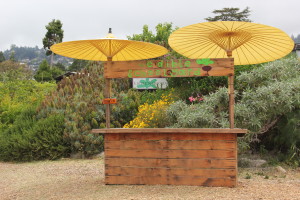
The seed planted grows
With the garden in place, the teachers, staff, and volunteers at Valmonte School in Palos Verdes Estates got to work building the outdoor classroom experience.
“The principal, Shirley Resich, was a huge proponent in giving us the green light to proceed and getting her staff engaged,” says Heffernan-Schrader. “She was thrilled that we were bringing back knowledge that would allow us to create a program that would utilize the garden in the school’s educational curriculum.”
Beginning with preschool and kindergarten, the “edible classroom” took shape, embracing not only the idea that the garden could be a hands-on learning environment for students, but that the lessons from the garden could be infused into classroom teachings on subjects as varied as art, history, math, and science.
Soon other elementary schools in the district began revitalizing abandoned gardens and creating their own school gardens and edible classrooms. It began spreading into the middle schools and high schools. Pretty soon the district was seeing an explosion in garden educational programs.
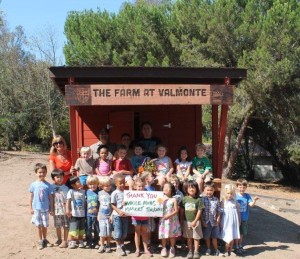
In 2011, Heffernan-Schrader joined forces with Sustainable Palos Verdes Schools,,a local nonprofit and EnrichLA, a community wellness organization, to build a farm extension of the Valmonte School garden that would support future outdoor learning experiences for the district campuses as well as special needs young adults that would use the program to help develop life skills. With funding support from Kaiser Permanente, the Garden Ranger program was instituted. Focusing on some of the most underserved areas in LA, the program helps train and pay edible education advocates to go into schools several hours a week to plant, maintain and troubleshoot the gardens and conduct classes.
Building a garden, building relationships
Heffernan-Schrader has now been attending the Edible Schoolyard Academy for four years, bringing a new team of edible educators each year who return to create and sustain garden programs in the community.
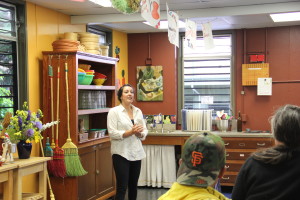
“Many of us knew how to garden and cook, but we didn’t know how to do it with the kids in an organizational manner that would also be an educational tool for the schools to apply to the existing curriculum being taught. But the Edible Schoolyard Academy really gives you every detail of how to create a school garden program – creating curriculum, teaching, coordinating volunteers, involving the administration. The program really gave credence to what we were trying to accomplish.”
“This school garden created a community empire,” she explains. “My life is changed because of it. Gardening is fundamentally a community-building experience. No matter who you’re standing with, the garden equals out everything. You all get your hands dirty and watch as beautiful conversations unfold like a flower blossom.”
- Visit the Edible Schoolyard Project website or follow them on twitter at @EdibleSchoolyrd
- Follow the work of Sustainable Palos Verdes Schools on twitter at @SustainablePV
- Follow the work of Enrich LA on twitter at @EnrichLA
- Follow more of Diana Heffernan-Schrader work @garden_bella
This post was originally published in July 2014.
